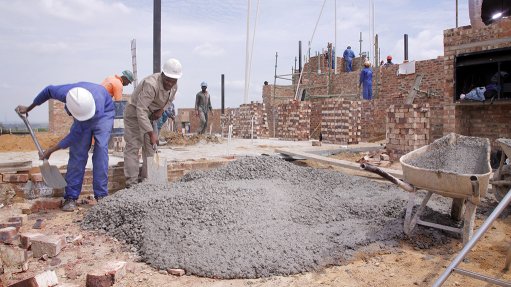40 years on
When I was 19, I fell in love with a girl who was studying at the University Cape Town (UCT). I was studying at the University of the Witwatersrand at the time and had just finished my second, second year of electrical engineering. But, in the July holidays, I had met this girl and decided that I should move university to Cape Town, to UCT.
To say that UCT students of today are pampered is a huge understatement. In my time, we cooked our own food (no government handouts) and we paid our own fees. Or at least I did. The faculty of electrical engineering made sure you learned and learned well. Oh yes, the girlfriend. She dumped me six months on. I, in general, did not have much money and I frequently stopped studies to work for six months to be able to afford the next year’s fees.
Finally, I qualified. It had been a hard road. Fast forward to today. I now work as a consulting engineer and I have worked as an engineer since 1978, which is 42 years. Of the first-year class of 168 students, 35 of us actually graduated. Of those, five work as engineers – the rest are managers, business owners. So, a major effort to get five working engineers. Engineering has been my living, but it has not really made me wealthy. This is more curious than it sounds – if an engineer makes a mistake it can be very costly both in lives and money. In fact, I have to have insurance for R3-million to compensate if I do make a mistake. So, we should be adequately compensated. We are not.
The whole matter is this: you can’t call yourself a professional accountant if you are not registered and have a South African Institute of Professional Accountants qualification, and you can’t call yourself a medical doctor or dentist or surgeon if you are not registered with a health professions council. You can’t call yourself an architect, land surveyor, structural engineer, et cetera.
But you can call yourself an ‘electrical engineer’, even if all you can do is install Christmas lights. The result is that many electrical installations in South Africa are unsafe. I see this all the time: power transformers installed with the overtemperature alarms and gas alarms not connected, circuit breakers installed where they are not rated for the fault level and, that most common of modern errors, standby diesel generators which are massively overrated.
If you are an engineer and have some experience, then you can apply to be registered as a ‘professional engineer’ with the Engineering Council of South Africa (ECSA). The council is quite strict and you really have to be qualified to be registered. But guess what? There is no work that is ‘reserved’ for registered professional electrical engineers. So, while only doctors can doctor and only dentists can drill and structural engineers can design, et cetera, any darn fool can do electrical design work. And ECSA, first as the South African Council of Professional Engineers and now ECSA, has, over the past 50 years, done nothing to change this. Committees have been established but nothing happens. If I am misinformed, I would be overjoyed.
Now I am not just taking a tilt at ECSA per se. I had a communication from them recently which upset me and set me on this path. I religiously make staff apply for registration but I really can’t really see the reward. The point is that it is vital – no, essential – that electrical design work is done, and done safely, by qualified people. And that ECSA provides that assurance by registering qualified engineers to do reserved work. Right now, that is not the case. Okay, you may say, so what? A body which is nonfunctioning in some respects? In South Africa? Hello? Hello?
But it is not that. What if a substation explodes and a building burns down? And so on. This situation really must change. It’s been allowed to go on for far too long.
Comments
Announcements
What's On
Subscribe to improve your user experience...
Option 1 (equivalent of R125 a month):
Receive a weekly copy of Creamer Media's Engineering News & Mining Weekly magazine
(print copy for those in South Africa and e-magazine for those outside of South Africa)
Receive daily email newsletters
Access to full search results
Access archive of magazine back copies
Access to Projects in Progress
Access to ONE Research Report of your choice in PDF format
Option 2 (equivalent of R375 a month):
All benefits from Option 1
PLUS
Access to Creamer Media's Research Channel Africa for ALL Research Reports, in PDF format, on various industrial and mining sectors
including Electricity; Water; Energy Transition; Hydrogen; Roads, Rail and Ports; Coal; Gold; Platinum; Battery Metals; etc.
Already a subscriber?
Forgotten your password?
Receive weekly copy of Creamer Media's Engineering News & Mining Weekly magazine (print copy for those in South Africa and e-magazine for those outside of South Africa)
➕
Recieve daily email newsletters
➕
Access to full search results
➕
Access archive of magazine back copies
➕
Access to Projects in Progress
➕
Access to ONE Research Report of your choice in PDF format
RESEARCH CHANNEL AFRICA
R4500 (equivalent of R375 a month)
SUBSCRIBEAll benefits from Option 1
➕
Access to Creamer Media's Research Channel Africa for ALL Research Reports on various industrial and mining sectors, in PDF format, including on:
Electricity
➕
Water
➕
Energy Transition
➕
Hydrogen
➕
Roads, Rail and Ports
➕
Coal
➕
Gold
➕
Platinum
➕
Battery Metals
➕
etc.
Receive all benefits from Option 1 or Option 2 delivered to numerous people at your company
➕
Multiple User names and Passwords for simultaneous log-ins
➕
Intranet integration access to all in your organisation

















